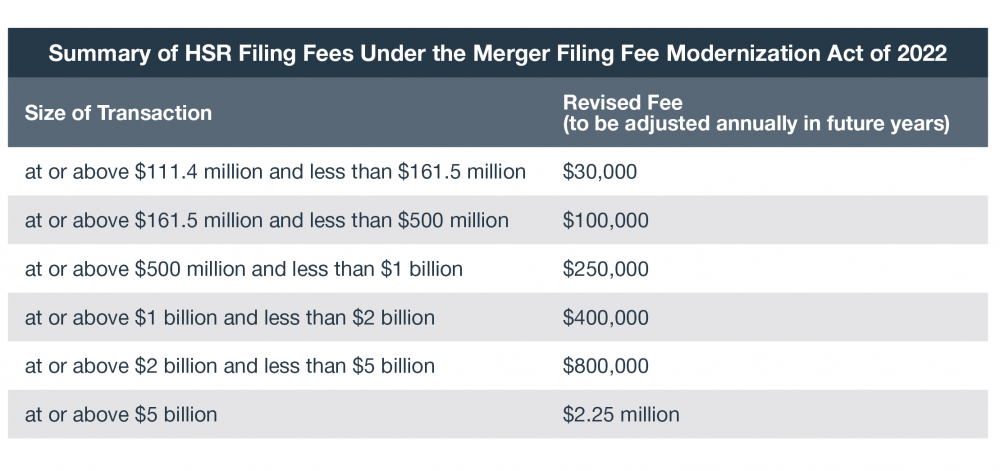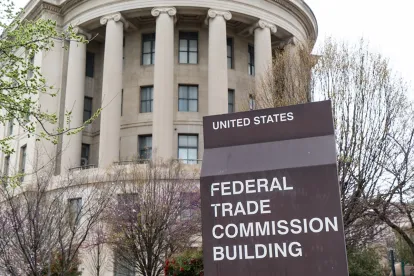The Hart-Scott-Rodino Act (“HSR”) requires that transactions over a certain value be reported to the Federal Trade Commission (FTC) and U.S. Department of Justice Antitrust Division at least 30 days prior to closing. That reporting threshold is revised annually based on U.S. gross national product. Effective February 27, 2023, the new threshold to keep in mind is $111.4 million (up from $101 million in 2022). You should consult antitrust counsel if you are acquiring or selling voting securities, non-corporate interests in a business (such as interests in an LLC or partnership), or assets valued over $111.4 million.
The fees for making HSR filings have also changed this year. The Merger Filing Fee Modernization Act of 2022 dramatically increased filing fees for larger transactions but lowered the fees for some smaller transactions. The following fees are also effective February 27, 2023:

More guidance on the Merger Filing Fee Modernization Act is available here.
When determining whether an HSR filing is necessary, the following questions usually must be addressed:
What is the value of the transaction?
The HSR rules are complex, and many times, whether the size-of-the-transaction threshold is met depends on the details of the transaction’s structure and whether any HSR exemptions apply.
If the transaction exceeds the $111.4 million threshold, are the parties large enough?
If the transaction is valued at or above $111.4 million but less than $445.5 million, then the size of the parties is considered. If one party to the deal (and all of that party’s parents, affiliates and subsidiaries) has sales or assets over $222.7 million dollars, and if the other party has sales or assets over $22.3 million, then the transaction might be reportable. All non-exempt transactions valued over $445.5 million are reportable, regardless of the size of the parties.
Do any exemptions apply?
The HSR rules contain several exemptions which can reduce the transaction value or eliminate the obligation to make a filing altogether. For instance, the HSR rules do not apply to certain acquisitions of non-U.S. entities or assets, acquisitions made solely for the purpose of investment, or certain real estate acquisitions.
The last and perhaps most critical question is:
What will the FTC or Antitrust Division do after the filing is made?
The filing triggers a 30-day waiting period during which the parties cannot close the transaction. The waiting period allows the Agencies to review whether the transaction could harm or diminish competition in the market for any particular product or service. If the parties compete or operate in the same market or industry, antitrust counsel should be consulted early in the process to determine how the transaction might affect competition and the likelihood that the Agencies may oppose or challenge the transaction.
Ignoring the HSR threshold can be costly. Failure to file a required HSR notification can draw penalties of over $45,000 for each day of noncompliance. Keep the number $111.4 million in mind as you negotiate and structure any transaction in 2023.







 />i
/>i
